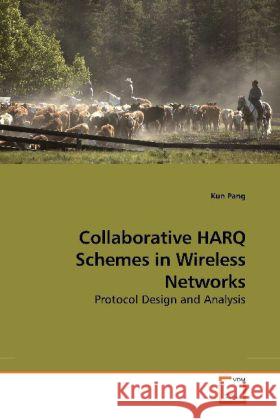Collaborative HARQ Schemes in Wireless Networks : Protocol Design and Analysis » książka
Collaborative HARQ Schemes in Wireless Networks : Protocol Design and Analysis
ISBN-13: 9783639183504 / Angielski / Miękka / 2009 / 144 str.
This book proposes an improved HARQ scheme with an adaptive relaying protocol (HARQ-ARP). Focusing on the HARQ as a central theme, we start by introducing the concept of ARP. Then we use this as the basis for designing three types of HARQ schemes, denoted by HARQ I-ARP, HARQ II-ARP and HARQ III-ARP.We describe the relaying protocols, (both AAF and DAF), and their operations, including channel access between the source and relay, the feedback scheme, and the combining methods at the receivers. To investigate the benefits of the proposed HARQ scheme, we analyze its frame error rate (FER) and throughput performance over a quasi-static fading channel. We can compare these with the reference methods, HARQ with AAF (HARQ-AAF) and HARQ with perfectly distributed turbo codes (DTC), for which correct decoding is always assumed at the relay (HARQ-perfect DTC). It is shown that the proposed HARQ-ARP scheme can always performs better than the HARQ-AAF scheme. As the signal-to-noise ratio (SNR) of the channel between the source and relay increases, the performance of the proposed HARQ-ARP scheme approaches that of the HARQ-perfect DTC scheme.











